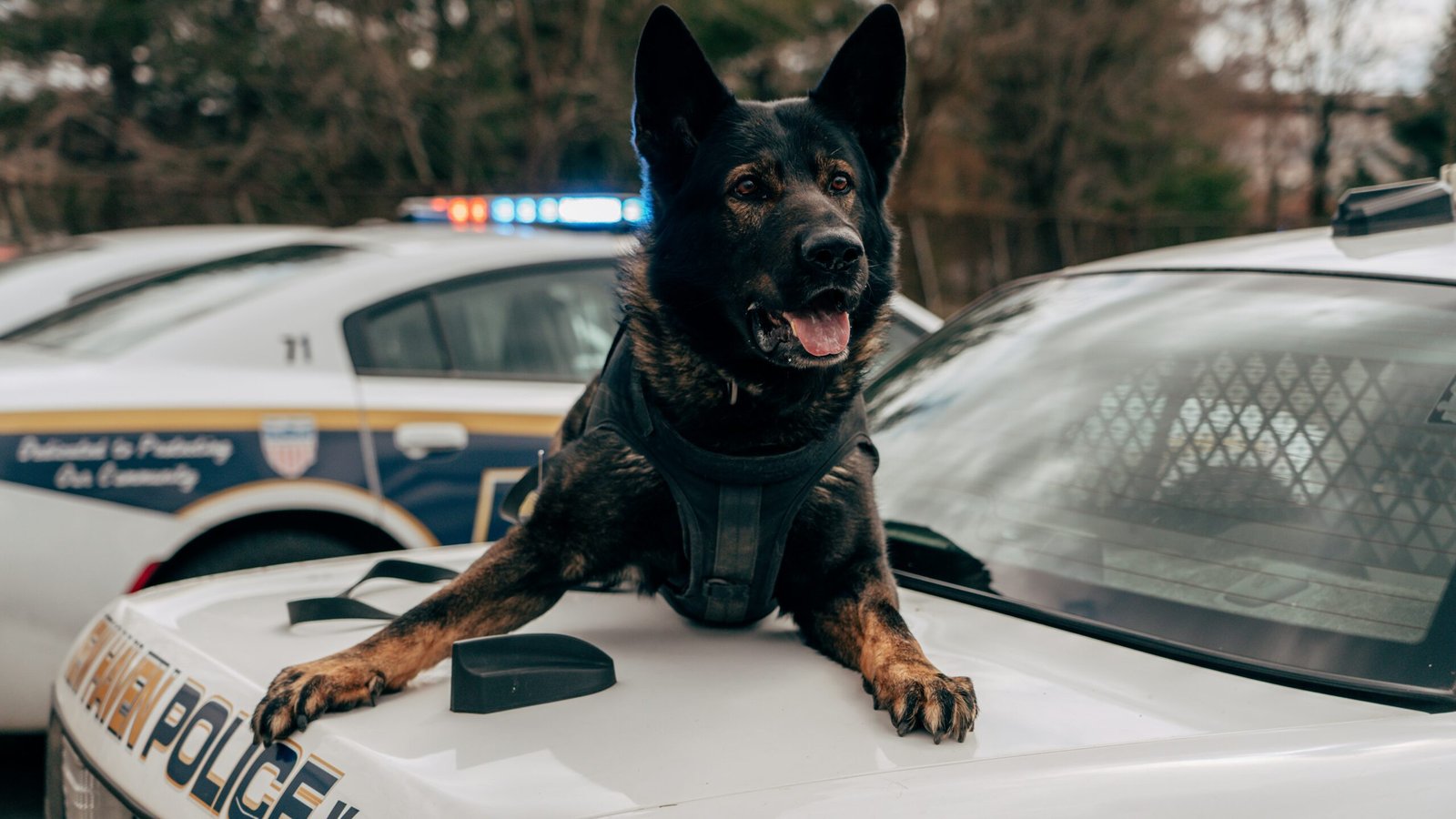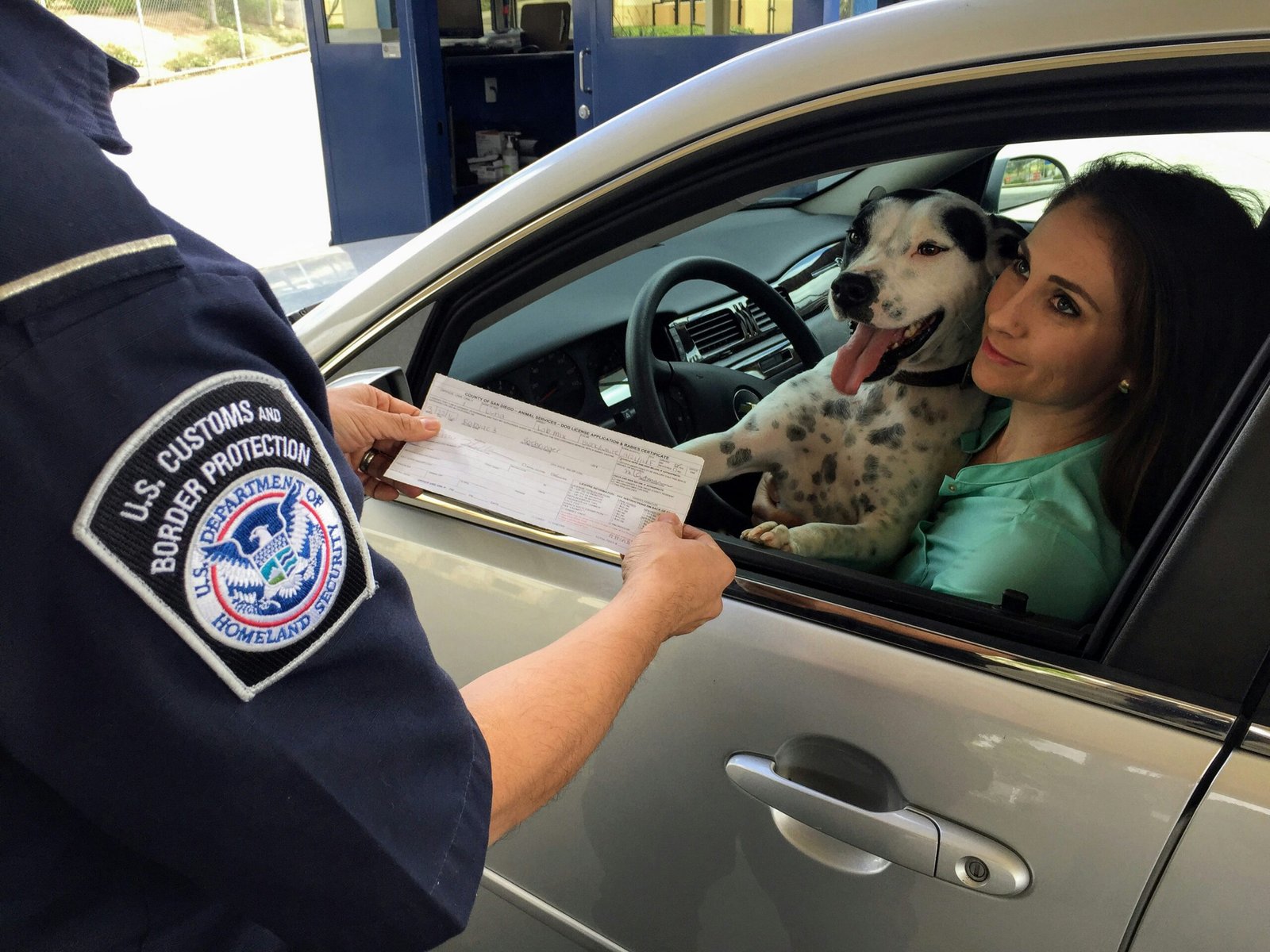Dogs are known as man’s best friend, but their relationship with the legal system is much deeper than you might think. Throughout history, dogs have played unique roles in the justice system, from aiding in criminal investigations to influencing court rulings and even inheriting wealth. Here are nine fascinating facts about how dogs intersect with the law, showcasing their incredible contributions and the legal protections they enjoy.

1. Bloodhound’s Sense of Smell: Evidence That Holds Up in Court
Bloodhounds aren’t just great trackers—they’re legal heavyweights. Their sense of smell is so precise that it has been used as evidence in court. In fact, their scent-tracking abilities have been upheld in legal cases worldwide. The first evidence was used in a legal case back in 1888! Bloodhounds have been known to follow a trails up to 12 days old and can follow a trail over 100 miles, thanks to their 300 million scent receptors (compared to a human’s 5 million). Their skill has helped solve countless cases, proving that a dog’s nose can be just as important as a detective’s notebook. However, courts often require handlers to prove the dog is a purebred bloodhound and has training before admitting scent evidence. This ensures that these canine contributions meet legal standards.

2. France’s Pet Inheritance Law: A Lasting Dog Dynasty
In France, pets are recognized as sentient beings under the law, and their welfare is taken seriously. While pets can’t directly own property or money, French law allows owners to leave inheritances to their pets through strict trust guidelines. These trusts ensure that the pet’s caretaker has the resources to provide for the animal’s needs, such as food, medical care, and shelter. For example, if a dog owner passes away, the funds in the trust are managed by a trustee, who oversees the pet’s care. This approach ensures the dog’s well-being without risking misuse of the inheritance. It’s a compassionate system that highlights the deep bond between humans and their pets, ensuring that beloved companions are cared for even after their owners are gone.
However, laws in the United States have been becoming leaning away from treating dogs as property and more often as legally sentient. In 2007, Leona Helmsley made headlines when she left $12 million to her beloved Maltese, Trouble. The hefty inheritance was later reduced to $2 million by a judge, but it still covered Trouble’s lavish lifestyle, including full-time care, gourmet meals, and round-the-clock security until her death in 2011.
Although Oprah Winfrey is still alive, the media mogul has made plans to leave $30 million in trust for her dogs. With her immense wealth, Oprah ensures her furry family will be well cared for, highlighting her deep devotion to her pets.

3. Canine Units: Don’t Mess With Paw Enforcement
Terrible dog puns aside, Police dogs, also known as K9 officers, are vital members of law enforcement teams worldwide. These highly trained dogs assist in a wide range of tasks, including drug detection, bomb sniffing, tracking suspects, and search-and-rescue operations. In many countries, police dogs are legally considered officers of the law, and harming them carries severe penalties.
For example, in the United States, harming or killing a police dog is often a felony offense, with fines and significant prison time as potential consequences, as it should be. This legal status underscores the value of these animals in protecting public safety and their officers in the line of duty. Police dogs work tirelessly alongside their human counterparts, and the laws protecting them reflect their critical role in maintaining law and order.
4. Dogs as Witnesses? Well, Sort of…
While dogs can’t take the stand and testify, their behavior and abilities can sometimes heavily influence legal outcomes. For instance, when a K9 officer alerts to something during a search, it can serve as evidence that illegal substances or materials are present. Courts sometimes could rely on the testimony of the dog’s handler to validate the dog’s training and the accuracy of its actions. In a few rare cases, a dog’s ability to alert to scents has even been used to solve cold cases. However, there’s debate around the reliability of scent evidence, particularly in situations where a handler’s biases might inadvertently influence the dog. Despite these challenges, the use of dogs as “witnesses” showcases their incredible value in the justice system.

5. Courtroom Therapy Dogs: Emotional Support for Witnesses
Facing a courtroom can be an overwhelming experience, especially for vulnerable individuals such as children, victims of trauma, or those with disabilities. That’s where courtroom comfort dogs come in. These specially trained therapy dogs are allowed in some courtrooms to provide emotional support to witnesses during trials, and they have to undergo rigorous training to go from a simple therapy dog to a courtroom comfort dog! Remember they are in a high stress environment and need to stay calm and support the emotional well-being of their courtroom patient.
These dogs help calm nerves, reduce anxiety, and create a more supportive environment for the witness to share their testimony. For example, a child testifying in a difficult case might feel more at ease with a comforting dog by their side. There is also many claims that it improves the detail of the witness’s testimony, I don’t know about you but I’d feel distracted by the adorable dog. While this practice has been increasing in popularity, some attorneys and judges may be against it because it could sway the jury by adding undue sympathy for the witness. With it gaining further legal precedence, many on both sides agree on the importance of emotional well-being in the legal process and how dogs can help ensure justice is served.

6. Historical Dog Taxes: You Needed A Dog License?
Dog license laws date back hundreds of years and were mostly implemented as a form of taxation. In the 19th century, these laws helped control dog populations, generate revenue, and ensure public safety. Owners were required to purchase a license for their dogs, with the funds often supporting local animal control efforts. While the historical purpose of dog licenses was primarily tax related, modern licenses have taken on new importance. Today, they are used to identify pets, verify vaccination records, and reunite lost dogs with their owners. Some regions still enforce dog license laws, emphasizing responsible pet ownership and community safety, In many cities in Germany there still is a Dog tax, that mostly goes to animal welfare and shelters.

7. Pet Custody: Who Gets The Dog?
When couples divorce, deciding who gets the family dog can be one of the most emotionally charged issues. Historically, pets were treated as property in legal disputes, but that’s been changing recently. Courts are increasingly recognizing the unique bond between humans and their pets and making custody decisions based on the dog’s welfare.
Factors such as who spends more time with the dog, who provides primary care, and which home environment is more stable can all influence custody rulings. This shift reflects the growing understanding that pets are family members, not just possessions, and deserve consideration in legal disputes.
8. Service Dog Fraud: A Serious Offense
Service dogs are trained to perform specific tasks for individuals with disabilities, such as guiding the visually impaired or alerting to medical emergencies. These dogs are granted special access to public places under laws like the Americans with Disabilities Act (ADA). However, some people falsely claim their pets as service animals to gain access to restricted areas or attain special privileges.
This act of misrepresentation, known as service dog fraud, is illegal in many regions and can result in fines or criminal charges. Pretending a pet is a service dog undermines the trust and protections provided to genuine service animals and their handlers. It also jeopardizes the integrity of public spaces where these working dogs are essential. Just don’t do it, if you want your pup to have more privileges try getting them registered as an Emotional Support Animal (ESA) it is much easier and less legally serious. However, if you need more assistance then getting your dog verified as a service animal can be a major life improving step for both you and your dog.

9. Search and Seizure: Police Dogs and the Fourth Amendment
The use of police dogs in searches has sparked significant legal debates, particularly around privacy rights. In the landmark U.S. Supreme Court case Florida v. Jardines (2013), https://supreme.justia.com/cases/federal/us/569/1/ the Court ruled that a police dog sniffing at the front door of a home without a warrant constituted an illegal search under the Fourth Amendment.
This decision highlighted the balance between law enforcement practices and constitutional rights. While police dogs play a crucial role in detecting evidence, their use must align with legal standards to protect individuals’ privacy. Unfortunately the dog didn’t know any better, and as great as our K9 Officers may be they still don’t know the law. It’s a reminder of the complex relationship between dogs and the law in ensuring both justice and civil liberties.
Our Courtroom Canines, Investigators, and Officers
From aiding in investigations to comforting witnesses and influencing legal precedents, dogs play a more important role in our legal system than any other animal. Their contributions highlight the deep bond between humans and animals and the need for laws that protect and celebrate their unique abilities. Whether they’re serving as police officers, witnesses, or courtroom companions, dogs continue to prove that they are more than just pets they’re invaluable colleagues in our justice system.
Sources:
https://www.cbsnews.com/news/leona-helmsley-leaves-12m-to-her-dog
https://supreme.justia.com/cases/federal/us/569/1/
YouTube, CBS Mornings “Facility Dog Pella Comforts Children Testifying in Court” https://youtu.be/HvVJ1E6P7ZE?si=LZ3RaxruAyAjm6ki







